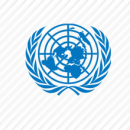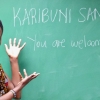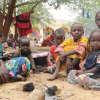At UN, West African leaders cite terrorism as singular challenge to global peace and development
At UN, West African leaders cite terrorism as singular challenge to global peace and development
21 September 2016 – Underlining the importance of and complementarity between the 2030 Agenda for Sustainable Development and the Addis Ababa Action Agenda on financing for development, the President of Guinea-Bissau called on world leaders at the United Nations General Assembly to honour the commitments they made in the two global agreements.
“My country is strongly committed to do our part in implementing [them],” said President José Mário Vaz in his address to the Assembly’s annual general debate.
“We are proud of the fact that our National Development Plan is in line with many [goals] of the 2030 Agenda and also of [our] political will to gradually adjust [the Plan] to fully accommodate the 17 Sustainable Development Goals [SDGs],” he added.
Also, welcoming the recent Paris Agreement on climate change and calling for its effective implementation, the President underlined that the phenomenon also poses a major threat to Guinea-Bissau.
He further emphasized that global challenges, in particular, terrorism, also manifest at the subregional level and expressed his country’s solidarity with others in the world that are victims of such barbaric acts which completely disregard the values of humanity.
The Guinea-Bissau leader also informed the General Assembly that just prior to his leaving the country to attend the present session, an agreement was reached between the Prime Minister, the President of the National Popular Assembly and the two main political parties to overcome the parliamentary obstructions. He also thanked the Heads of State of Guinea and Sierra Leone as well as those of the Economic Community of West African States (ECOWAS) member countries for their efforts in arriving at the solution.
Further, recalling that since his assumption of the leadership of Guinea-Bissau, there have been no confrontations involving the military or paramilitary forces, no one has been killed for political reasons, and no human rights violations have been reported.
The President also urged the UN to support his country in its efforts for national reconciliation, in implementing security sector reform, and for participation of the its armed forces in UN peacekeeping missions.
In her address, Vice-President of Gambia Isatou Njie Saidy also referred to the grave challenges posed by global terrorism and called for collective action among all countries to defeat this dangerous threat to world peace, security and stability.
Isatou Njie-Saidy, Vice-President and Minister for Women's Affairs of the Islamic Republic of the Gambia, addresses the general debate of the General Assembly’s seventy-first session. UN Photo/Cia Pak
“We are gravely concerned that certain rogue politicians and nefarious intellectuals are using the ‘terrorist card’ to revive and propagate the notion of a class of civilization in which Islam is at war with the West,” she said.
“Their lambasting Islam is completely unacceptable and will only serve to further polarize the world. There is no war between Islam and the world and we reject any campaign to connect a nexus between Islam and terrorism,” she stressed.
Further, drawing the attention of the world leaders present to conflicts in the Middle East, Africa and other regions of the world, the Vice-Present underscored, in particular, that in spite of the dangerous situation in Syria, geo-political interests continue to override humanitarian considerations.
Turning to the global economic situation and its implications for sustainable peace, the Gambian leader underlined that a world marked by disparity and divided into zones of affluence and poverty cannot enjoy durable peace and security. She further underscored that the future of Gambia, and that of wider Africa, is directly linked to the future of its women and its youth and highlighted that the sheer number of youth migrating for what they perceive are better opportunities are depleting towns and villages back home.
“Against this disturbing phenomenon, therefore, international cooperation that can create jobs for the youth should no longer be a slogan but a calculated strategy to keep them at home in gainful employment that will enhance their wellbeing and help in the development of their countries,” the Vice-President emphasized.
In her address, she also noted the importance of the Paris Agreement on climate change as well as the need of UN and Security Council reforms, especially on the number of permanent seats and the power of veto at the Council. She further underlined the need of proper reparations for historic slavery that massive populations of African origin suffered and the discrimination and violence they had to face.













